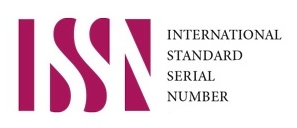6. New methods of load-carrying capacity prediction for the ultimately compressed frame structures
Organization:
Yangel Yuzhnoye State Design Office, Dnipro, Ukraine,1; Kharkiv Aviation Institute, Kharkiv, Ukraine2
Page: Kosm. teh. Raket. vooruž. 2024, (1); 51-60
DOI: https://doi.org/10.33136/stma2024.01.051
Language: English
Annotation: Amid acute problems that arise in the field of rocket and space technology, mechanical engineering, and
other fields and require a workable engineering solution, the problem of prediction and prevention of the
unpredicted collapse of the structural members of the structures subjected to loading is considered. Prediction
of the load-carrying capacity and residual life of the space frames during the long-term operation is based on
the analysis of the stress and strain state, using readings from the strain and displacement pickups installed
in the most loaded zones. In this case the yield strength of the structural material or the fatigue strength of
the material may be considered as the criterion of the maximum load. At the same time the loss of stability of
the compressed structural members used in the load-carrying thin-walled structures are among the potentially
dangerous failure modes. In these cases such failure occurs unexpectedly without any visible signs of change
in the initial geometry. Application of the adequate diagnostic techniques and methods of prediction of the
maximum loads under compression conditions will make it possible to avoid the structural failures. In this
case an assembly under test may be used for other purposes. To perform static strength testing, the rocket
and space companies use costly compartments of as-built dimension. Therefore, keeping compartments safe
solves an important problem of saving financial costs for hardware production. Nowadays this problem is
particularly acute when ground testing the new technology prototypes.
Key words: space frames, load-carrying members, stress and strain state, loss of stability, prediction of the structural failure.
Bibliography:
- Prochnost raketnyh konstruktsyi. Ucheb. posobie pod redaktsiyei V.I. Mossakovskogo. M.: Vyssh. shk., 1990. S. 359 (in Russian).
- Truesdell C. A first course in rational continuum mechanics. The Johns Hopkins University, Baltimore, Maryland, 1972. Russian translation was published by Mir, M., 1975. P. 592.
- Rabotnov Yu. Mehanika deformiruyemogo tverdogo tela.: Nauka, 1979. S. 744.
- Bolotin V. Nekonservativnyie zadachi teoriyi uprugoy ustoychivosti. Phyzmatgiz, M., 1961. S. 339.
- Feodosyev V. Izbrannyie zadachi i voprosy po soprotivleniyu materialov. Nauka. , 1973. S. 400.
- Muliar Yu. M., Fedorov V.M., Triasuchev L.M. O vliyanii nachalnyh nesovershenstv na poteryu ustoychivosti sterzhney v usloviyah osevogo szhatiya. Kosmicheskaya tehnicka. Raketnoye vooruzheniye: Sb. nauch.-tehn. st. 2017. Vyp. 1 (113). S. 48-58. https://doi.org/10.15193/zntj/2017/113/210
- Volmir A. Ustoychivost deformiruyemyh sistem. M., 1967. S. 984.
- Muliar Yu. M. K voprosy ob ustoichivosty szhatogo sterzhnya. Tekhnicheskaya mekhanika. Dnepropetrovsk: ITM. 2000. No S. 51.
- Muliar Yu. M., Perlik V.I. O matematicheskom modelnom predstavlenii informatsionnogo polia v nagruzhennoy deformiruyemoy sisteme. Informatsionnyie i telekommunikatsionnyie tehnologii. M.: Mezhdunar. akad. nauk informatizatsii, informatsionnyh protsessov i tehnologiy. 2012. No 15. S. 61.
- Koniuhov S. N., Muliar Yu. M., Privarnikov Yu. K. Issledovaniye vliyaniya malyh vozmuschayuschih vozdeystviy na ustoychivost obolochki. Mehanika. 1996. 32, No 9. S. 50-65.
Full text (PDF) || Content 2024 (1)
Downloads: 120
Abstract views:
2241
Dynamics of article downloads
Dynamics of abstract views
Downloads geography
| Country | City | Downloads |
|---|---|---|
| USA | Ashburn; Ashburn; Los Angeles; Buffalo; Las Vegas; Las Vegas; Buffalo;; Los Angeles; Washington;; Ashburn; Ashburn; Columbus; Dallas; New Haven; Dallas; Phoenix; Phoenix; Phoenix; Phoenix; Phoenix; Phoenix; Phoenix; Phoenix; Phoenix; Phoenix; Phoenix; Phoenix; Phoenix; Phoenix; Phoenix; Phoenix; Phoenix; Phoenix; Phoenix; Phoenix; Phoenix; Phoenix; Phoenix; Phoenix; San Francisco; Chicago; Los Angeles; El Monte; Buffalo; Buffalo; Seattle; Seattle; Houston; Houston; Houston; Houston; Ashburn; North Charleston; Mountain View; Mountain View;; Portland; Portland; Portland; San Mateo; San Mateo; Ashburn; Ashburn; Ashburn; Ashburn; Pompano Beach; Lakeside; Lakeside; Seattle; Seattle | 72 |
| Singapore | Singapore; Singapore; Singapore; Singapore; Singapore; Singapore; Singapore; Singapore; Singapore; Singapore; Singapore; Singapore; Singapore; Singapore | 14 |
| China | Pekin; Zhangzhou; Pekin; Pekin;; Tianjin;; Shenzhen; Linfen; Pekin; Sanming; Pekin | 12 |
| Germany | Falkenstein; Falkenstein; Falkenstein; Düsseldorf; Falkenstein; Leipzig; Leipzig | 7 |
| Canada | Toronto; Toronto; Toronto; Monreale | 4 |
| France | ; Ivry-sur-Seine; Paris | 3 |
| Ukraine | Kremenchuk; Odessa | 2 |
| India | Chiplun | 1 |
| Vietnam | Thuan An | 1 |
| Unknown | 1 | |
| Brazil | 1 | |
| Great Britain | Leicester | 1 |
| Netherlands | Amsterdam | 1 |
Visits:2241



